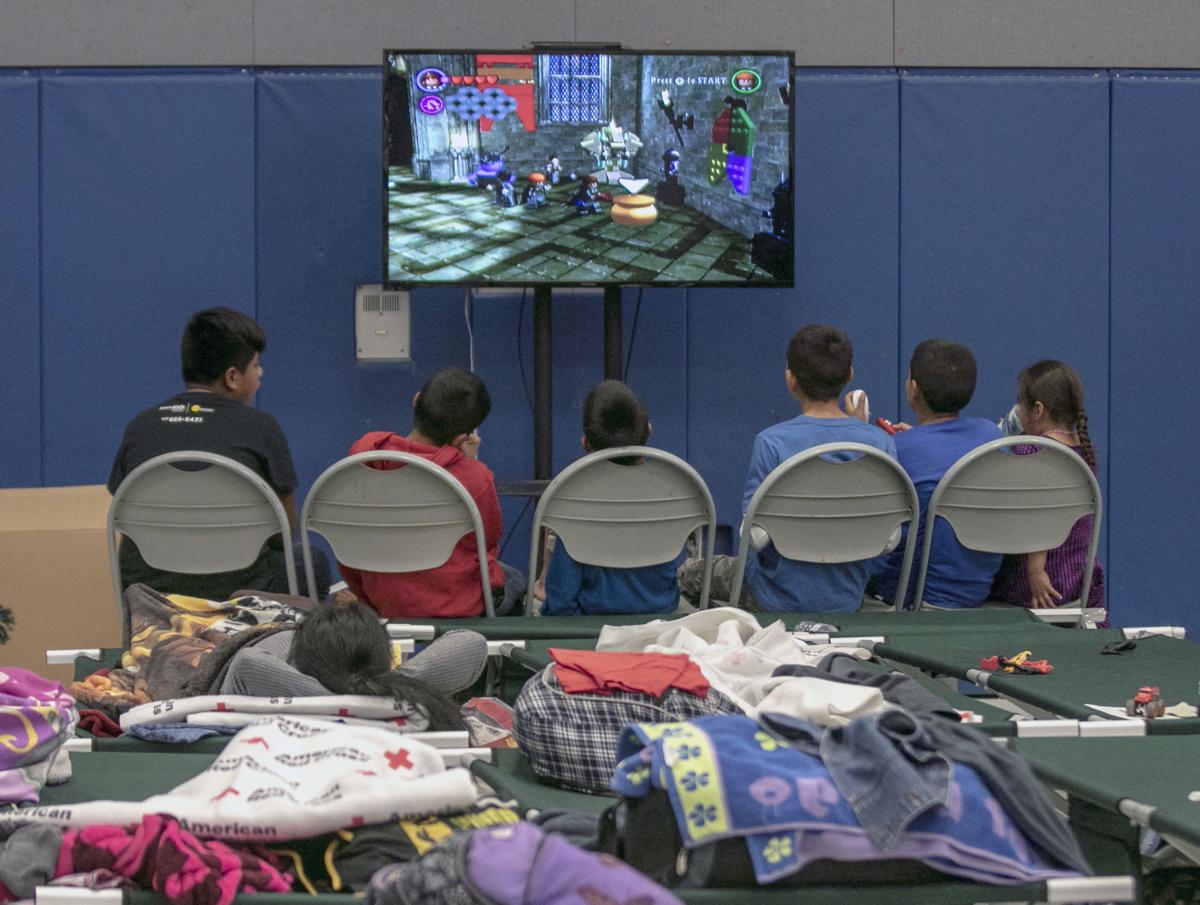A continuous influx of migrant families to Tucson has city and county officials working to expand temporary shelter options at municipally controlled facilities.
Over the weekend, Pima County opened a temporary shelter to help address the arrival of hundreds of asylum seekers released here by federal immigration agencies after being processed.
Just last week, the city of Tucson opened a shelter at a recreation center after officials received calls from federal immigration officials and Catholic Community Services — which operates a large shelter at the former Benedictine Monastery in midtown Tucson — saying they were out of space.
Since January, the Department of Homeland Security has brought more than 7,000 asylum seekers to Tucson, with the migrants spending on average three days here, according to Pima County Administrator Chuck Huckelberry.
But with no end in sight to the arrival of asylum seekers — mostly women and children — the looming concern is what will happen once the temporary shelters close. The former monastery is being redeveloped and will cease to operate as a shelter this summer.
In a memo to the Pima County Board of Supervisors, Huckelberry said private efforts by local churches have largely been able to absorb the influx of families dropped off by Homeland Security.
“If not for (Catholic Community Services), the other nonprofits and a host of volunteers, it is likely we would have had a significant humanitarian issue that would have required some kind of county response before today,” wrote Huckelberry.
However, a recent spike in the number of migrants released in Tucson — as many as 200 a day — has overwhelmed that support system, prompting the county to act.
The former monastery is not built to serve as a long-term transitional shelter and the facility is showing signs of failing, Huckelberry wrote.
In addition to the county-operated shelter, the county administration is expected to work with the city of Tucson Office of Emergency Management, Homeland Security, the emergency response nonprofit community and faith-based organizations to find a new shelter to replace the monastery after it is no longer available.
The Tucson City Council signed off Tuesday on plans to keep its temporary shelter open for the next few weeks.
Mayor Jonathan Rothschild said the city has an obligation to help migrant families — the vast majority from Central America — after they are dropped off by federal officers.
“I continue to believe as a community that we can host these folks for the few days that they are here in a humane way,” Rothschild said.
Immigration officials vet the families and release them to continue the process of their immigration cases elsewhere in the country, usually where they already have relatives or friends who can sponsor them.
Rothschild praised the efforts of Catholic Community Services over the past few months to absorb the influx of migrant families, but acknowledged the impending closure of the monastery.
“We are lucky to have the monastery because that can hold between 400 and 450,” Rothschild said.
“I know we are going to be good tonight, but I don’t know what the future is going to hold.”
Rothschild said he expects that the Salvation Army, which operates shelters in other communities, may open a new shelter in the coming weeks.
Rothschild largely ruled out declaring an emergency as Yuma did, asking the Trump administration for federal funds to reimburse the city for expenses spent on sheltering migrant families.
“I don’t see an opportunity for it,” Rothschild said. “From the information I have gotten so far, it doesn’t forward the conversation.”
He said the city will be tracking its expenses and will consider applying for federal funds through other mechanisms.
So far, while the both the city and the county are providing services to care for the migrant families, they are not spending any cash. Instead, faith groups are donating food and other items for the families.
No city or county services are being disrupted by the establishment of the temporary shelters, officials said.
Huckelberry, however, wrote in a memo that the county intends to pursue federal Operation Stonegarden funding earmarked for unaccompanied children and families on the southwest border.
In November, Homeland Security and FEMA established the funding, allowing local governments to request reimbursement for costs related to providing humanitarian relief.
“These allowable costs include costs for food, water, hygiene products, medicine, medical supplies and temporary housing, as well as costs for transportation to and from temporary housing or to permanent housing,” Huckelberry wrote.





